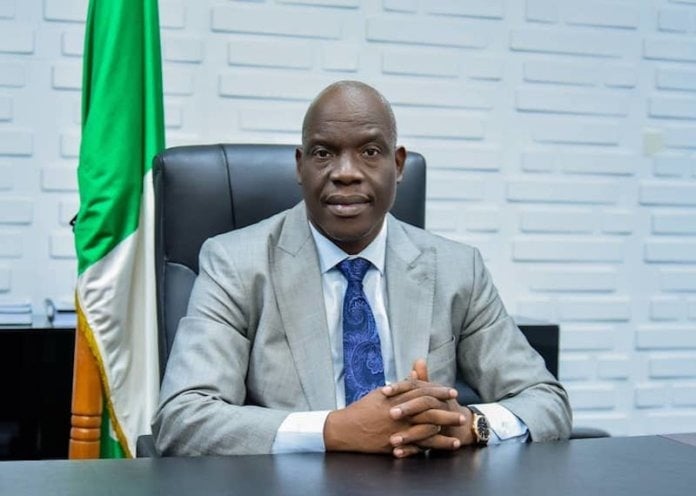The Ministry of Petroleum Resources, the Nigerian Upstream Petroleum Regulatory Commission and the Nigerian National Petroleum Company Limited have jointly opposed the bill to establish the National Commission for the Decommissioning of Oil and Gas Installations, 2024.
Their position was made known during a public hearing organised by the House of Representatives Committee on Petroleum Resources (Upstream), where top officials, including the Minister of State for Petroleum Resources (Oil), Heineken Lokpobiri, and the NUPRC Chief Executive, Gbenga Komolafe, voiced strong reservations about the proposed legislation.
In a statement signed by the NUPRC Head of Corporate Communications and Media, Eniola Akinkuotu, and released in Abuja on Friday, the commission stated that existing provisions under the Petroleum Industry Act 2021 already cover decommissioning and abandonment issues, making the creation of a new agency unnecessary and potentially disruptive.
PUNCH Online reports that the National Commission for the Decommissioning of Oil and Gas Installations Bill, 2024, seeks to establish a dedicated agency to oversee the dismantling, removal, and restoration of oil and gas installations at the end of their productive life cycles.
Proponents of the bill argue that a specialised body is needed to ensure environmental safety and prevent abandoned infrastructure from posing ecological risks, especially in the Niger Delta.
However, the government officials maintained that the Petroleum Industry Act, signed into law in August 2021, already provides a comprehensive legal and institutional framework for such oversight, and that any attempt to create a new commission could lead to regulatory conflict and duplication of duties.
In his submission, the Minister of State for Petroleum Resources said, contrary to assumptions by the lawmakers, creating a commission for decommissioning and abandonment would not address any community issues.
Lokpobiri further noted that Nigeria has been recording new Final Investment Decisions and witnessing renewed activities in upstream, midstream, and downstream operations, developments that were stagnant for over a decade before the Renewed Hope administration of President Bola Tinubu.
He said, “Creating a commission for decommissioning and abandonment would not address any community issues, as this was already being taken care of by the Host Community Development Trust Fund, which has generated nearly N400bn for community development projects.
“Creating a new agency to handle decommissioning and abandonment will duplicate the responsibility already vested in the NUPRC as provided by Sections 232 and 233 of the Petroleum Industry Act 2021.
“He therefore said the creation of the NC-DOGI risked scaring away investors.”
The minister also stressed that creating a new agency to handle decommissioning and abandonment will duplicate the responsibility already vested in the NUPRC as provided by Sections 232 and 233 of the Petroleum Industry Act 2021.
He advised the committee to step down the bill, citing that a predictable and stable legal framework attracts investors.
In his presentation, Komolafe said creating a different commission to handle decommissioning and abandonment is not in alignment with global best practices, where decommissioning and abandonment are domiciled with the upstream regulator.
Speaking as a subject matter expert, the CCE said the issue of decommissioning is not a stand-alone affair and would lead to having a separate regulator dealing with the Field Development Plan and a different agency handling decommissioning and abandonment.
“This will make the NUPRC not have full line of sight on the FDP as Decommissioning and abandonment are an integral part of any FDP and will jeopardise the intended objective of the development plan,” he added.
Komolafe noted that between 2014 to 2021, capital expenditure for oil and gas investment declined by about 75 per cent due to the lack of a stable legal and regulatory framework until the emergence of the PIA.
The CCE aligned with the position of the Honourable Minister of State for Petroleum (Oil) and further stated that “Nigeria has now put in place the PIA, tinkering with it will send wrong signals to the international community that we have again started to create an unstable framework which will be a disincentive to the investments.”
On his part, the Executive Vice-President, Upstream, NNPC, Udobong Ntia, agreed with the minister and the CCE that there was no need for the establishment of a new agency.
Ntia noted that decommissioning and abandonment are not a regular exercise but an activity that takes place at the end of the life of a field, which could take years.
“What will such a commission be doing when the NNPC, for instance, has no decommissioning and abandonment until 2045?” he asked.
He, therefore, wondered what NC-DOGI would be doing in the interim.
Earlier, the Chairman of the House Committee on Petroleum Resources (Upstream), Hon. Alhassan Ado Doguwa, said the bill was conceived in order to address local environmental issues and challenges within oil-producing communities.
The House Committee on Petroleum Resources (Upstream) is expected to review the submissions from all stakeholders before making recommendations to the National Assembly.









